Going the Distance: NC State’s Leadership in the Public Sector Program
Remote work isn’t an option for Kelly Blair. As a tree crew supervisor for the city of Wilmington, North Carolina, a routine workday is apt to find him in the bucket of a boom truck 40 feet off the ground, trimming the limbs of a laurel oak. Long hours on the job are followed by a long commute to his home near Chapel Hill, where he spends the weekends with his wife — a nurse with Duke Health in Durham — and three children.
So when Blair decided to go back to college midcareer, remote learning seemed like the ideal option. “At this point in my life, unless it’s a distance education program, I just don’t have the time,” he says.
In May, Blair will graduate from NC State with a Bachelor of Arts in leadership in the public sector, the university’s only fully online undergraduate degree — and he’ll likely have a perfect 4.0 grade point average when he does.
“It’s taken a lot of time away from my family,” he says, reflecting on the years he spent at a community college followed by four years at NC State. “But my family has always supported me. They see the bigger picture. This is what I needed to do to be where I want to be in life.”
His goal is to finish his degree at NC State, earn a graduate certificate in urban forestry and then advance into a more public-facing role on the job. “I love communicating with the public and handling issues that can cause some pretty severe safety hazards in the community,” he says. “I don’t really desire to be — and I’m probably not physically capable of being — a climbing arborist into my seventies. Moving into management is a natural progression.”
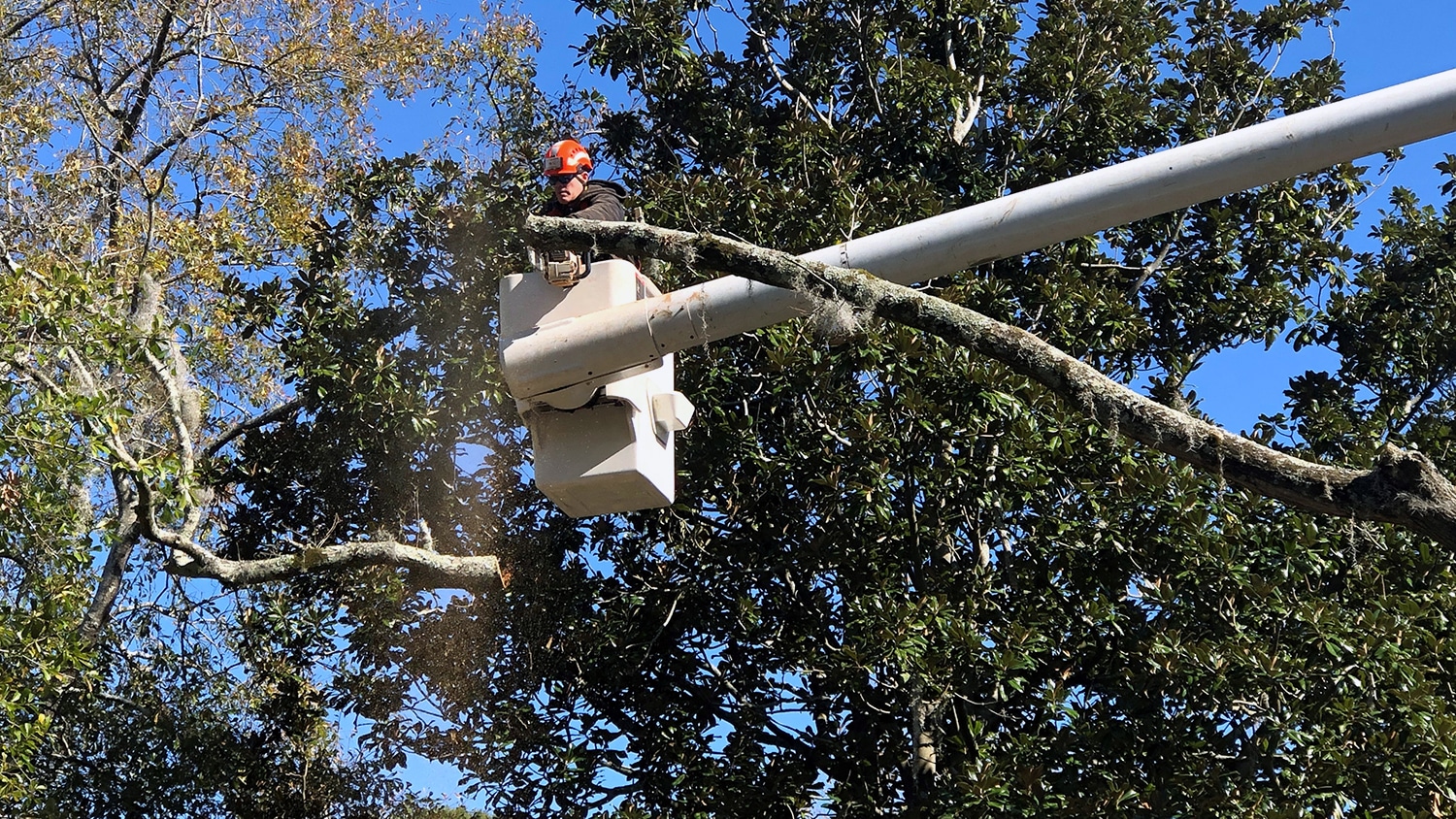
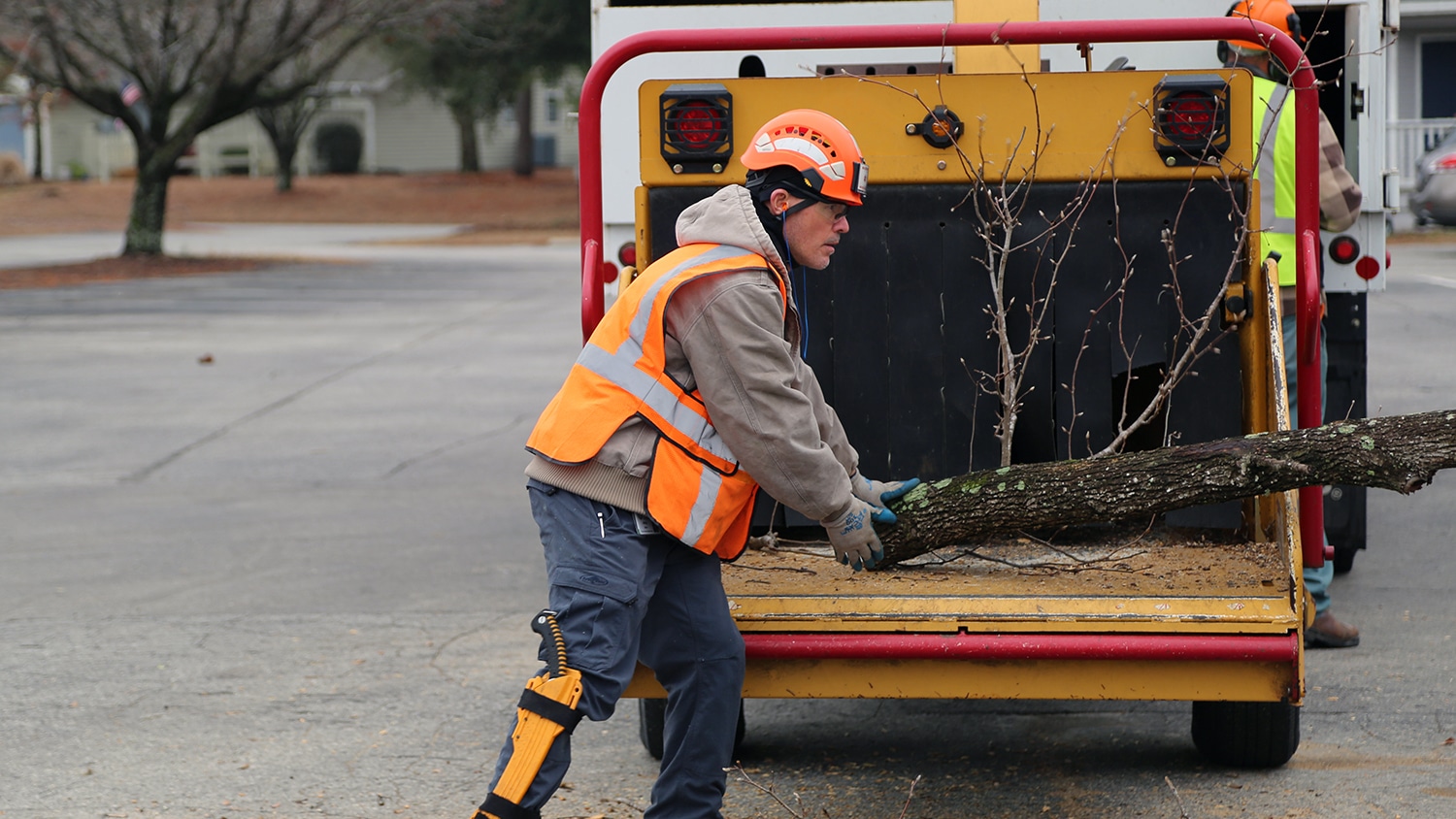
NC State’s degree in leadership in the public sector, or LPS, is designed for students who have already completed some college coursework — typically 60 credit hours — through a community college or four-year institution. The program’s four core courses cover the basics, including the ethical, theoretical and analytical skills students need to be effective leaders.
Another six courses from an approved list allow students to delve into a wide range of topics, including grant writing, fundraising, the justice system and the American political process, organizational psychology, and the intersection of science, technology and human values.
Students round out the curriculum with free electives from across the university, making it a highly engaging and personalized course of study.
Blair’s experience in the LPS program is a world away from his high school days in Virginia, where he struggled with his studies. “As a young adult, it was really hard for me to find a passion,” he says. “I preferred the outdoors to going to class. I can’t tell you how many times I went fishing instead of doing my schoolwork.”
Eight days after graduating from high school, Blair joined the U.S. Army. At Fort Polk, Louisiana, which encompasses parts of the Kisatchie National Forest, he realized that his passion for the outdoors could lay the foundation for a rewarding career.
“I fell into the green industry: landscape maintenance, landscape management. I even became a certified grounds manager at one point,” he says. “Then I started to focus on woody ornamental plants and trees. And that’s been my passion ever since.”
At NC State, Blair found professors whose passion for teaching matched his emerging passion for soaking up knowledge. “I’m floored by most of the professors I’ve had,” he says. “They have just knocked my socks off.”
Asked to name a favorite course, he’s quick with an answer that might surprise even the wonkiest professor. “I recently took a class titled Research Methodology for the Public Sector, and it was a real eye-opener,” he says. “I’ve looked at a lot of scientific papers while studying to be a board-certified master arborist, but I never really had any idea what went into leading a research study.”
He values the curriculum’s multifaceted approach to teaching key aspects of transformational leadership. “You learn about compassion, integrity, ethics and morals,” he says. “As a leader, you learn not only to get things done, but also to incorporate people skills to a much greater degree. As that happens, I believe the workplace becomes more sustainable, equitable and enjoyable.”
Quality Matters
Traciel “Trace” Reid, an associate professor of political science, is director of the LPS program. She says military members and their families were the program’s primary focus when it launched a decade ago; now, that’s changing.
Although the program continues to attract and cater to the needs of service members, the student population is much broader these days. Some students, like Blair, are driven by a desire to advance in their careers. Others want to complete a degree for family or personal reasons. An increasing number are comfortable with the technologies used in distance education and like the flexibility of taking courses online at their own pace.
“The program is really evolving in terms of the kinds of students who are looking for an alternative to the four-year campus experience,” Reid says. “What they share in common is the belief that going to a traditional college is not compatible with where they are in their lives.”
The program is really evolving in terms of the kinds of students who are looking for an alternative to the four-year campus experience.
What isn’t changing is the program’s commitment to academic excellence. “We combine a strong theoretical base with an opportunity for students to interact with faculty who have a practical applied dimension, too,” Reid says. “Our instructors have worked in a variety of settings, and they bring those experiences to the virtual classroom.”
Tracy Appling, a teaching assistant professor of public and international affairs, teaches some of the program’s core courses, including Introduction to Public Leadership. She has 20 years’ experience in higher education administration as well as a background in nonprofit management and fundraising. She also directs external relations and internships for NC State’s School of Public and International Affairs, the academic home for the LPS program.
In addition to her academic training and real-world experience, Appling brings a passion for student success to her work. “What makes us different is that our instructors give our students as much help as they need, and as much help as if they were in a classroom face to face,” she says. “For myself, I really take a personal approach because I absolutely love these students.”
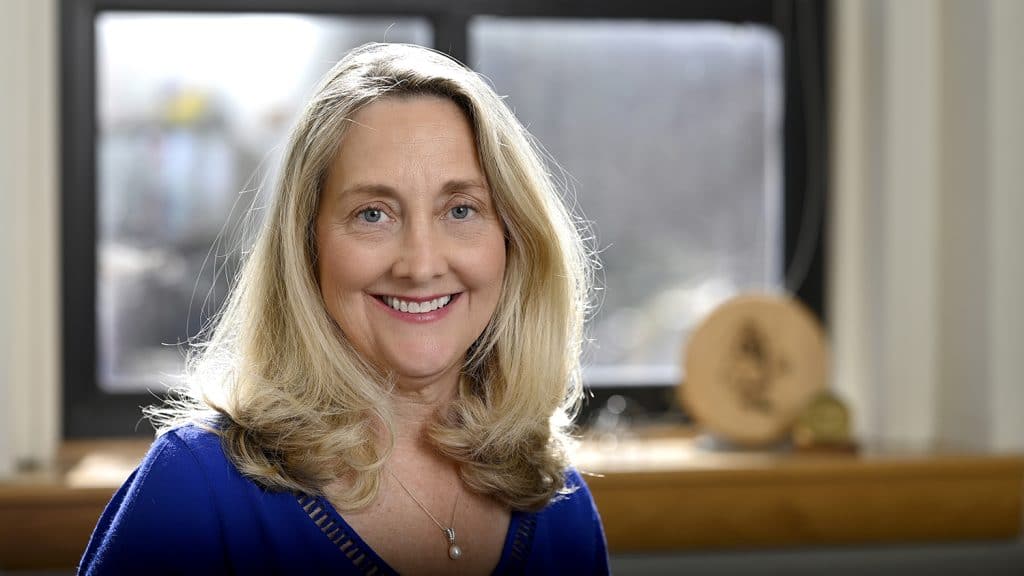
A lot of work has gone on behind the scenes to build LPS into one of the top 10 online undergraduate degree programs in the country. A few years ago, Appling and four other instructors went through the rigorous process of getting the program’s core courses Quality Matters certified, an international standard for online education.
“It’s the gold standard,” she says. “We had to meet quality expectations for 42 standards with a score of 85{e4f787673fbda589a16c4acddca5ba6fa1cbf0bc0eb53f36e5f8309f6ee846cf} or better. It’s all focused on whether you’re providing the student with the best online learning experience possible.”
Bethanne Winzeler, assistant director of course quality for DELTA, NC State’s distance education division, says QM rubrics and standards encompass eight areas: course overview and introduction, learning objectives, assessment and measurement, instructional materials, learning activities, course technology, student support and accessibility.
“The main concept in QM is alignment,” she says, noting that every aspect of a course must work together to ensure student success.
“That’s very important because when students go into an online course, every course is different and structured differently,” she says. “So they need to know exactly where to go, how to get started, how to communicate with the instructor and with each other, and how to navigate the course.
“That sets them up for success right from the start.”
Winzeler, who has a Master of Science in instructional technology, worked with the LPS faculty to achieve QM certification. “It involved a tremendous time commitment and, honestly, a lot of blood, sweat and tears,” she says. “I’m proud of them for taking the time to do it. It really shows their dedication to their teaching and to their students.”
Paying It Forward
The program’s quality was at the top of Amy Bisset’s mind when she decided to transfer from a traditional bachelor’s program in history to the LPS program. A native of South Korea, Bisset is committed to enhancing her English writing skills as she earns her degree.
“I rewrote one paper more than 10 times,” she says, laughing.
Unlike Blair, Bisset is just beginning her LPS coursework, and she has about two years of work to complete before she graduates. As the mother of an 11-year-old daughter and a 16-year-old son, she appreciates the flexible schedule made possible by distance education.
Thankfully, her efforts in the history department won’t go to waste; she has enough credit hours to earn a minor in history.
“I’m very excited,” she says. “The leadership courses align with my career goals. As soon as I graduate, I plan to start a business helping students who want to study abroad — especially students in Korea who want to study in the United States.”
Bisset says her main motivation for returning to college was personal, not professional. “I wanted to show my kids that I’m serious about the importance of studying. They’ll never be able to say, ‘You always tell me to study, but you’re not doing anything.’”
LaShica Waters, the LPS program’s academic advisor for the past 10 years, is a key resource for students like Bisset. She works with incoming students to map out their future course of study while accounting for the college courses they’ve already completed. She is nearly always available to answer questions about online resources such as Moodle and is quick to give LPS students advice on study tools and techniques.
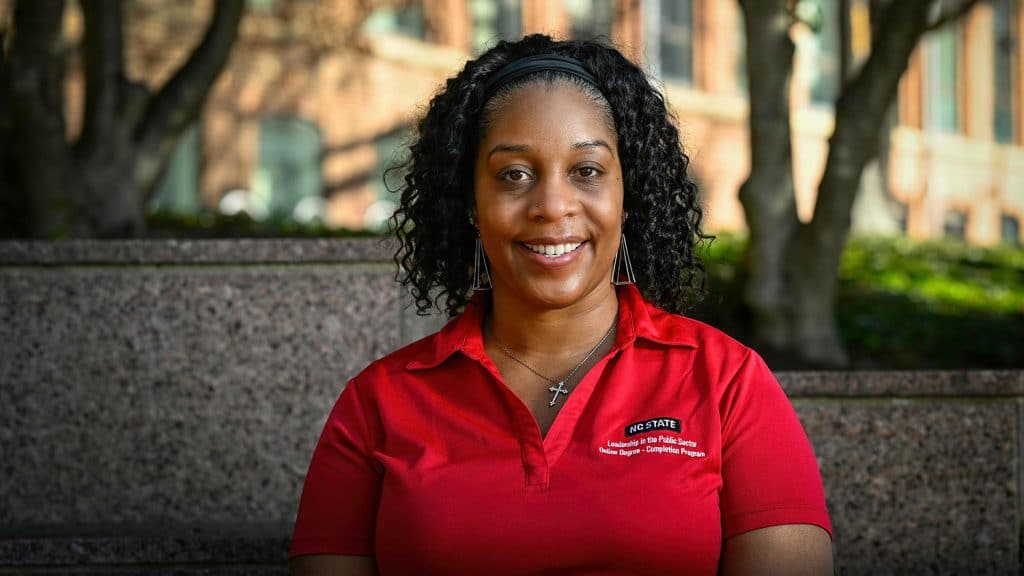
“I tell my students everything I wish somebody would have told me when I was first going to college,” says Waters.
For students and prospective students alike, Waters is at times a mentor, confidant, ally and friend.
“When I first meet with them, adult students want to talk about everything,” she says. “They tell me their life history, how they got where they are today and why they’re now coming back for their degree. They want to plan all their courses, and they have a lot of questions: How long will it take? How much money will it cost? When do I graduate? What’s the celebration like?”
Waters delights in her role, recalling the assistance she received from a neighbor after she graduated from high school. The neighbor, surprised to hear that Waters had no college plans, drove her to East Carolina University and helped her apply for admission and financial aid. “That’s what propelled me to go to college,” Waters says. “If it hadn’t been for her, I don’t know if I would have found anyone else to help me.”
Waters, a first-generation college graduate, has since earned a bachelor’s degree in communication and a master’s degree in counselor education from ECU, as well as a Ph.D. in adult workforce and continuing professional education from NC State.
Her primary goal for LPS is to find ways to help students connect with each other, with faculty and with the program’s many alumni, near and far. “They want more engagement, and they want more inclusion,” she says. “Even though they’re online students, they want to feel a part of the campus community.”
A Rewarding Journey
Amanda Buchanan understands the importance of student engagement. A 2012 graduate of the LPS program, she now works as director of financial aid at Blue Ridge Community College in Flat Rock, North Carolina.
“I think a lot of people have a preconceived notion that they’re just going to breeze through an online program,” she says. “But online learning takes a lot of the responsibility and puts it squarely on you. Yes, the instructor is going to build the class and provide you with content, but you have to prepare, you have to read, you have to plan ahead. And more than anything, you have to be comfortable asking questions.”
During her time in the LPS program, Buchanan made a point of staying in touch with her professors. “The instructors made it very interactive. They recorded lecture videos, they had online office hours so we could log in and talk with them, they made themselves very accessible,” she says. “I never felt like I was alone in the program.”
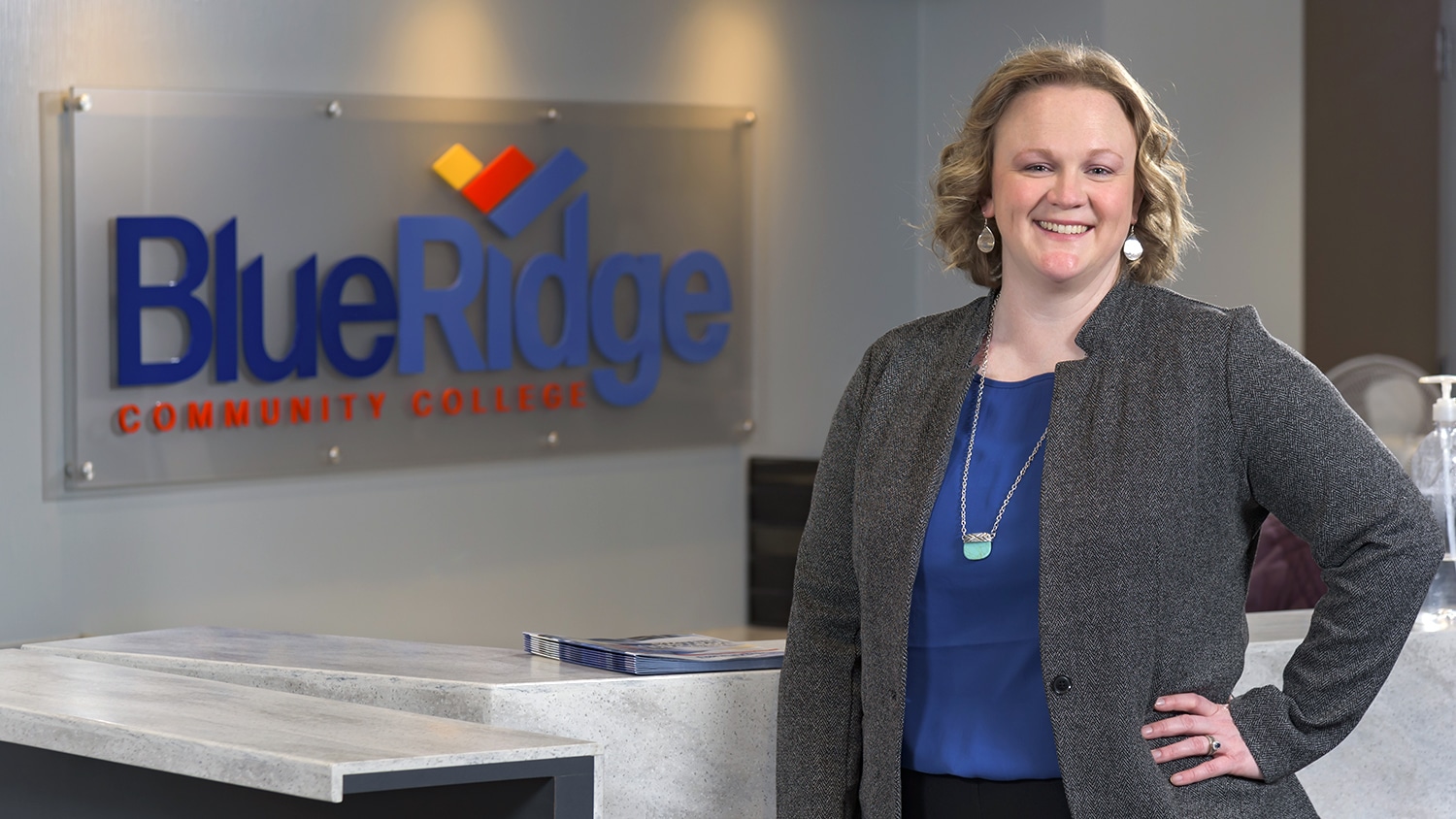
She credits her career advancement to the lessons she learned in the leadership program. “When I started working on my degree, I was an administrative assistant at a community college,” she says. “At work, I found myself using what I learned in my courses: how to work with people, how to hold difficult conversations, how to implement change. Because of that, I was given opportunities that I truly believe I would not have had otherwise.”
One opportunity was a trip to Washington, D.C., where Buchanan spoke with public officials about the financial challenges facing college students. “I got to use my knowledge of leadership and public policy and what goes into writing public policy to frame how I approached that conversation and how I spoke with them,” she says.
I never felt like I was alone in the program.
After completing her undergraduate degree at NC State, Buchanan continued her educational journey, earning a master’s in executive leadership from Liberty University and a master’s in adult and continuing education from ECU.
Looking back, she doesn’t make light of the struggles involved in balancing work, home and school.
“I vividly remember sitting at my kitchen table with my youngest son in a baby carrier up against my chest, rocking him to sleep while working on a paper,” she says. “My husband would take care of the oldest and I had the baby because he would sleep as long as he was close to me. And that’s how we survived.”
But, she adds, she has no regrets.
“It’s not a quick journey and it’s not an easy journey and it’s not something that’s going to happen overnight,” she says. “But what I always tell students is that it’s worth every sleepless night. It’s worth every snooze button that you have to hit in the morning. It’s worth every tear you cry onto your keyboard when you’re typing that paper. It’s worth all of those things, because in the end you have grown as a person. And you have earned something that nobody will ever take away from you.”





